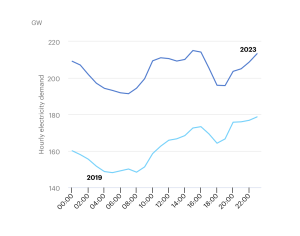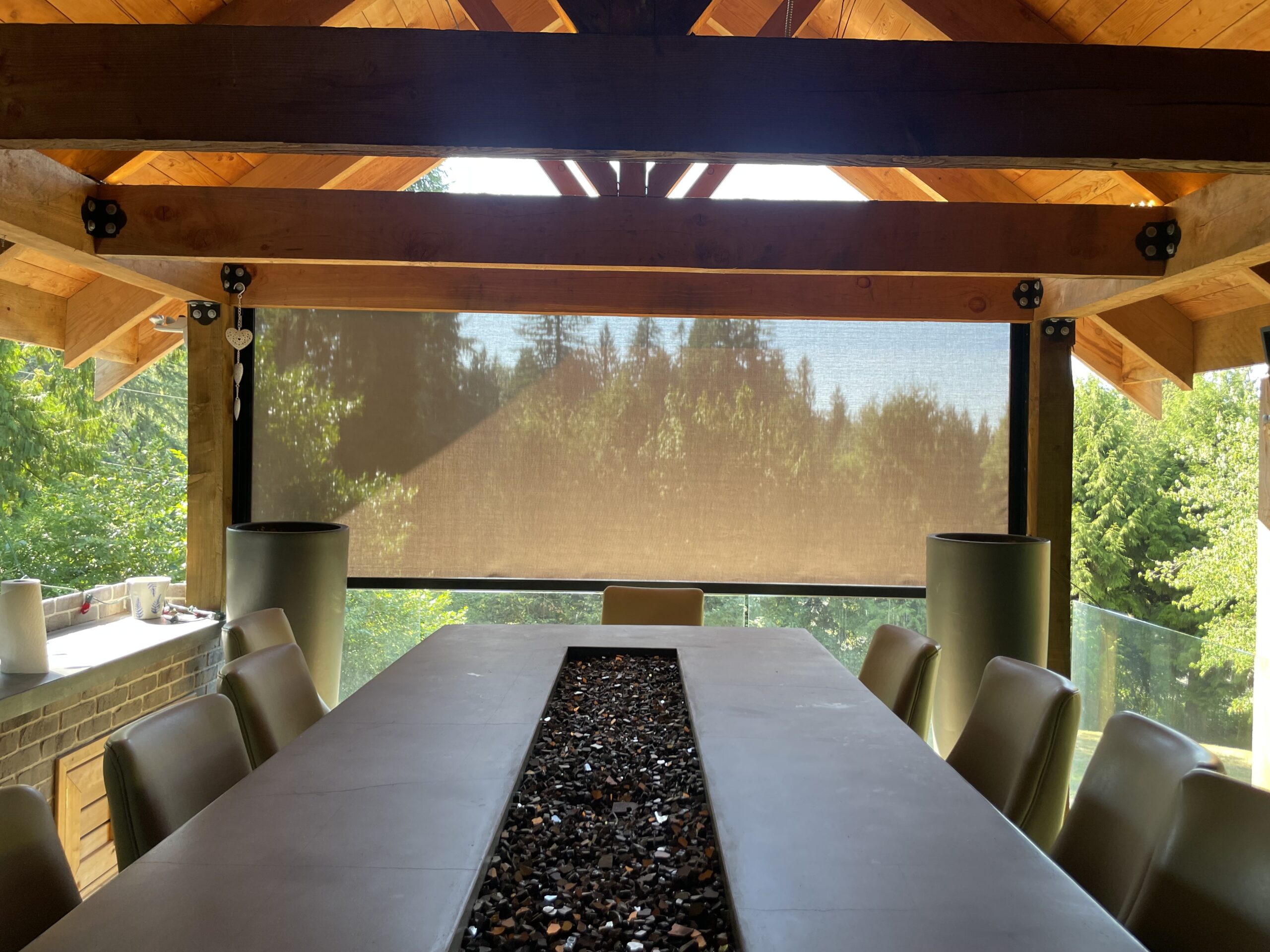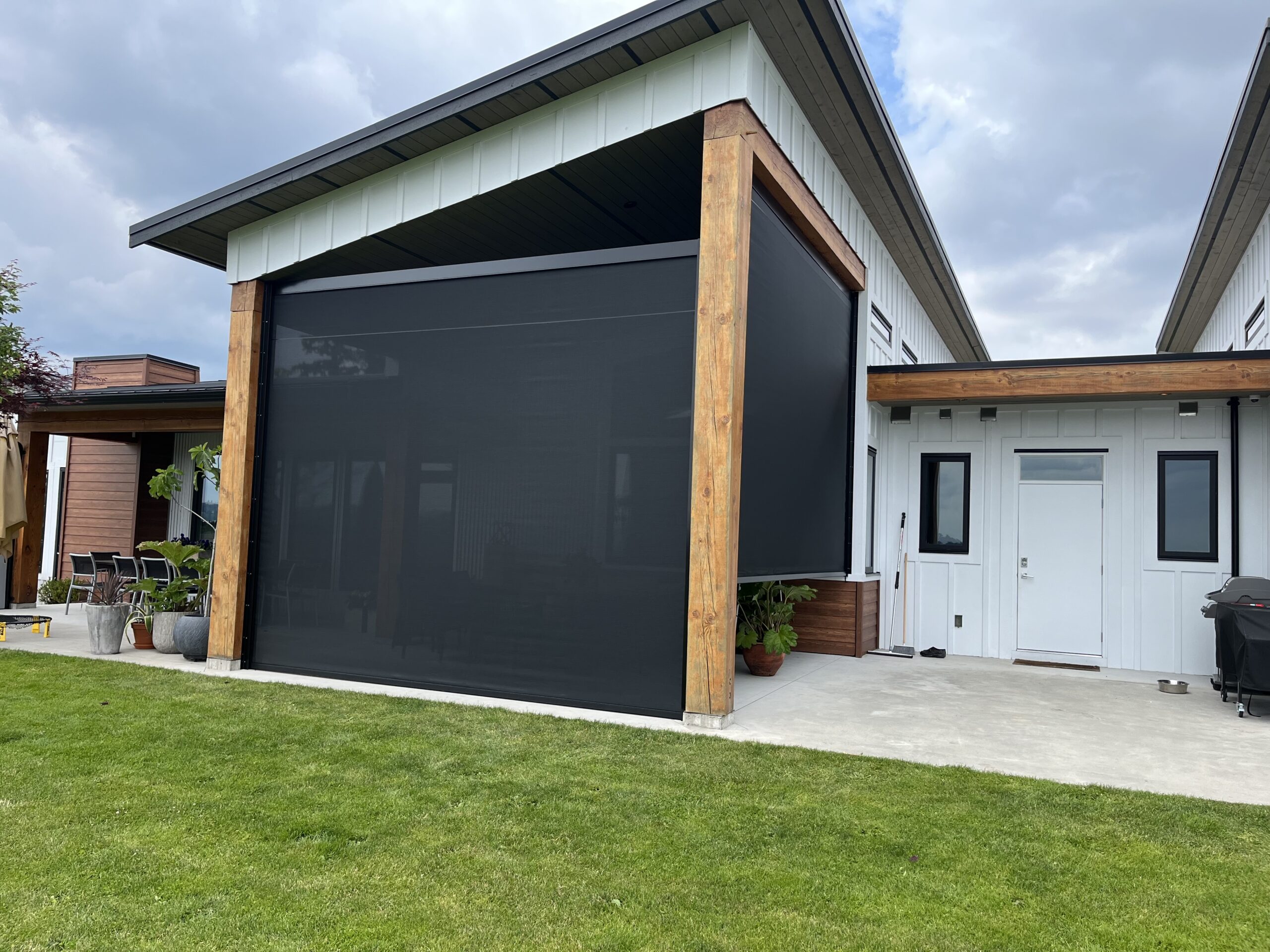![]()
As climate change intensifies, the need for sustainable and environmentally friendly practices has become clear to all of us. The BC government however is funding the purchasing of airconditioning devices for senior citizens, instead of promoting readily available passive cooling solutions. This is a strange government initiative, especially because BC has a number of companies that are leading players in the passive cooling markets. Passive cooling does not use electrical energy, unlike active cooling which tends to use huge amounts of energy. Airconditioning is the best know form of active cooling.
It would seem that the BC government preaches environmentally friendly practices but, in this case, does exactly the opposite when it comes to allocating taxpayer dollars. Is this deliberate? Why would the BC government use Canadian tax dollars to purchase Japanese and American airconditioning units when they could buy Canadian passive cooling solutions? Is it the massive lobby efforts by these foreign vendors?
The Carbon Footprint of Active Cooling
Air conditioning has become the default solution for cooling in many parts of the world. However, it is far from a sustainable option. Air conditioning units are energy hogs, contributing significantly to carbon emissions each time they are used. This creates a paradox: we use energy-intensive devices to combat the effects of climate change, which in turn worsens the problem. The BC government’s decision to invest in air conditioning for senior homes perpetuates this cycle of environmental degradation.
The environmental impact of air conditioning is multifaceted. First, air conditioners consume a vast amount of electricity. According to the International Energy Agency (IEA), electricity demand on high temperature days in the year has increased on average by 50 GW in just 4 years. This demand is particularly high during peak summer months, leading to increased strain on the power grid and often necessitating the use of fossil fuel-based power plants to meet the demand. Consequently, this results in higher greenhouse gas emissions, contributing to global warming.

Moreover, the refrigerants used in air conditioning systems, such as hydrofluorocarbons (HFCs), are potent greenhouse gases. Although many countries are moving towards phasing out HFCs due to their high global warming potential, the transition is slow, and older units still rely on these harmful chemicals. When these refrigerants leak, they have a much greater impact on climate change compared to carbon dioxide, exacerbating the environmental damage.
The production and disposal of air conditioning units also have significant environmental costs. The manufacturing process involves energy-intensive activities and the use of raw materials like steel, copper, and aluminum, which contribute to carbon emissions. Additionally, the disposal of old and inefficient air conditioning units creates electronic waste, which is often not recycled properly, leading to further environmental degradation.
The BC government’s decision to prioritize air conditioning over more sustainable solutions like passive cooling not only increases immediate energy consumption but also sets a precedent that ignores the long-term environmental costs. By perpetuating reliance on energy-intensive cooling systems, they are inadvertently promoting a cycle of higher energy use and increased emissions, which further exacerbates climate change. This short-sighted approach fails to address the root causes of the problem and overlooks the potential of innovative, eco-friendly alternatives.
In contrast, passive cooling solutions, such as Habitat Screens, offer a sustainable and efficient way to reduce indoor temperatures without the hefty environmental cost. By investing in and promoting such technologies, the government can help reduce carbon emissions, lower energy demand, and mitigate the adverse effects of climate change. It is essential for policymakers to recognize the significant carbon footprint of air conditioning and take proactive steps to support and implement more sustainable cooling solutions.
Habitat Screens: A Viable and Sustainable Alternative
Passive cooling solutions, such as Habitat Screens, offer a more sustainable and effective approach. These screens can reduce indoor temperatures by up to 13°C by blocking solar heat before it enters the building. This not only creates a more comfortable living environment but also drastically cuts down on energy consumption. Habitat Screens can lower energy demand by 50-80%, reducing the strain on the energy grid and lowering carbon emissions.
Contradictions in Policy
The BC government’s choice to fund air conditioning over passive cooling is baffling, especially given their vocal support for climate action. This decision appears to prioritize immediate, albeit temporary, comfort over long-term sustainability and environmental health. It’s a stark contradiction to their stated goals of reducing carbon footprints and promoting green energy solutions.
The Advantages of Passive Cooling
- Environmental Benefits: Passive cooling systems like Habitat Screens significantly reduce greenhouse gas emissions by lowering energy consumption. In contrast, air conditioning units are among the highest contributors to household energy use and carbon emissions.
- Economic Savings: Reduced energy demand translates into substantial cost savings for both residents and the government. Investing in passive cooling can reduce long-term financial burdens on public funds and individual households.
- Health and Comfort: Passive cooling provides a stable and natural temperature regulation, which can be healthier and more comfortable for residents, especially for seniors who are more vulnerable to extreme heat.
A Call for Sustainable Solutions
It’s time for the BC government to reassess their approach to cooling seniors’ and other homes. By investing in passive cooling solutions like Habitat Screens, they can demonstrate genuine leadership in environmental sustainability and fiscal responsibility. This change would not only align with their climate goals but also set a positive example for other regions to follow.
Conclusion
The current strategy of prioritizing air conditioning is short-sighted and environmentally damaging. As we face the escalating impacts of climate change, our policies and practices must reflect a genuine commitment to reducing our carbon footprint. The BC government has an opportunity to lead by example, choosing sustainable solutions that protect both our planet and its people. It’s time for the government to walk the talk on climate action and embrace solutions that truly benefit everyone.
About Talius
Talius stands as the foremost manufacturer of premium roll shutters and Habitat Screens in North America. Our roll shutters provide robust defence against vandalism, theft, and unauthorized entry, safeguarding schools and commercial buildings and residences. Talius’ Habitat Screens are designed to significantly diminish heat absorption in buildings during sunny periods and heatwaves, resulting in a notable reduction of up to 50% in air conditioning energy consumption. To best serve clientele across the continent, Talius maintains offices in both Florida and British Columbia.
Learn more about Talius at www.talius.com
Contact:
e. info@talius.com
p. 1 – 888 – 550 – 6205















